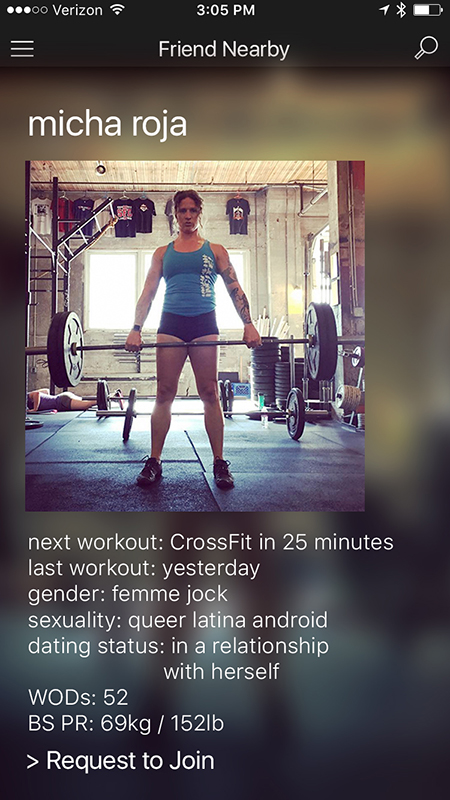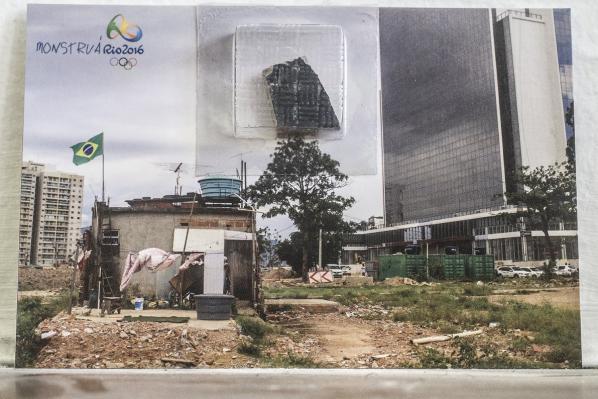



Featured image: ToolsForAction.net / Artúr van Balen and QueerSport.info / Zeljko Blace, ‘POP-UP RAINBOW’, 2014
Zeljko Blace is working in(-between) contemporary culture, media technologies and sport, cross-pollinating queer, media and social activism. He is one of the initiators and a co-curator of the project ‘contesting/contexting SPORT 2016.’
to reclaim the field with art and activism
exhibition and program in Berlin (08.07-28.08.2016)
at nGBK and KunstraumKreuzberg/Bethanien
http://ccSPORT.nGbK.de
www.facebook.com/cc.sport.2016/
www.twitter.com/CcSPORT2016
The exhibition and program contests the field of SPORT through critical art and activist practices. Coming from feminist and queer practices, the project aims to challenge discrimination and encourage emancipation. SPORT is contextualized from its declarative neutrality and autonomy, rendering diverse influences, but also experiences and conditions of SPORT realities visible.
Organized by the ccSPORT international working group of the nGbK including also: Caitlin D. Fisher, Carmen Grimm, Mikel Aristegui, Sarah Bornhost, Stuart Meyers, Imtiaz Ashraf, Andreea Carnu, with support from: Tom Weller, Alexa Vachon, Ilaa Tietz, Tabea Huth, Barbara Gruhl, Steffy Narancic, Tristan Deschamps, Coral Short, Gegen Berlin, Schwules Museum, and advisors: Alex Brahim, Jennifer Doyle, Philippe Liotard, Jules Boykoff, Stephane Bauer and †Frank Wagner.
BOSMA: The ‘contesting/contexting SPORT 2016’ exhibition and program shows a wide range of uncommon perspectives on sports, questioning cultural systems embedded in them we hardly ever think about. Why did you make this exhibition?
BLACE: In this ‘networked’ and globalized time we paradoxically live out a multiplicity of highly fragmented realities, niched in specialized interest groups, while ‘others’ feel they can not contribute or even relate to them. It felt like this to me in my work during the late/post 90s with tactical and net media activism/art – fully disconnected from queer politics and sports organizing for which I had an increasing interest. In general the field of sport has not been part of the lives of many intellectuals, activists and creatives. Many had bad (even traumatic) experiences with sport in childhood and adolescence, feeling alienated, or simply not recognizing it as a possible field to develop work in (unlike right-wing populists in tribal fan cultures). Simply put, the sport system has been taken for granted in its current form. Hence, my first curated sport exhibition title, paraphrased ‘sport hater’ Chomsky, in ‘Another SPORT is possible?!.’ (2012, Galerija NOVA, Zagreb, Croatia). My Berlin colleagues and ccSPORT co-founders Caitlin Fisher, Tom Weller and Carmen Grimm felt the same about the separation of sport from arts, activism and academic research. Together (with the support of exhibition spaces nGbK and Kunstraum Kreuzberg/Bethanien) we made plans to instigate and support intersections, cross-pollinate practices and perspectives between these fields through an exhibition, program and media work. We strongly felt the field of sport would never become self-critical and reform, nor would it engage with a wider audience beyond a given consumerist mode, if left to the managerial mentalities and the opportunism of its leaders. We need to reclaim the field of sport together to change it.

Is this the first ever exhibition criticizing the cultural and political dimensions of sports, and if not, how does your perspective relate or differ from earlier approaches?
I can not say with complete certainty what other group exhibitions on sport critique have taken place before. There have been many on a small scale, marginal in comparison to the huge exhibitions that ‘celebrate’ sports and are used as decor and entertainment accompanying sport spectacles (a notable exception is the seminal work ‘Electronic Café’ by K. Galloway & S. Rabinowitz at the 1984 LA Olympics, that actually provides space for interaction/discussion in between different city locations). There were also a few archival exhibitions looking at historical artifacts and documentation critically, as well as some that were experimental and playful (such as the Fluxus Olympiad, scripted as non-competitive multi-sports event) but these approaches were somewhat one-sided. We aspire to create a basis for both critical reflection and informed envisioning of possible developments, by looking at personal perspectives and artistic visions, next to grass-root alternatives and interventions.

The main threads in the exhibition seem to be gender, queerness and the connection between culture, commerce and rules in sport. Are these the main issues at hand?
Indeed our starting points were feminist and queer positions, but we were also very interested in the wider range of intersections and systemic issues within the field of sport that we could connect, rather than focusing on single-issues like homophobia or racism as is often done in mainstream sport campaigns. We decided very early on that the project would not be about identity politics, but rather about the multiplicities of axes of discrimination. There is a spectrum of emancipation efforts and practices that inspire us to think outside of gender norms, result-focused competitions, spectacle creating events and omnipresent ‘development’ narratives – which ignore for example that women had more access to certain sports historically in different geographies then they did in past 30 years of globalized neoliberalism.
augmented_profile from Diego Grandry on Vimeo..
How do you see the role of the media in the perception of sport?
Traditional broadcast media are the key stakeholder in the Olympics and similar sporting-spectacles. They have made the organizers of large sport events addicted to their huge broadcast contract revenues, but then inherently push for the spectacle of mega-events even further at the cost of other aspects. Newer sports that have evolved around this economy of attention have often sexed athletes (most visible with female beach volleyball) or at least contributed to enforcing gender stereotyping (like the feminization of soccer/football to the point that there are almost no short haired players at the Olympics). Instead of actively evolving with the progressive trends in sport, most broadcasters deepen the stereotypes; too often commenting on the marital status and appearance of female athletes, or referring to them as girls. Athletes from smaller countries, and sports that receive the least coverage are often looked down on, projecting neo-colonial relations on them (or hosts as in Brazil).
With internet networks and ‘social’ media the situation it is more complex as the interactive nature of media often allows for feedback and multiple standpoints in the same, or various foras. These media diversity brings to the surface and exposes critical minority voices and individuals who are able to argue against norms and question their necessities. For example, the tokenizing of muslim female athletes during these last Olympics received great reactions including historical facts about muslim women winning medals in the ‘80s and ‘90s. Also the outing of gay athletes by one reporter, was widely criticized online and the media hype reboot around Caster Semenya was compensated by internet and hybrid media (i.e. AJ+) publishing numerous expert articles and even giving voice to many (including former opponents critics converted to supporters as in case of Australian runner Madeleine Pape).

The connection between rules and cultural systems in sports is fascinating to me. You have worked as an organizer/curator in Multimedia Institute/MaMa before focusing on sport. What is your perspective on the rise of technological systems in the enforcement of rules, like for example drug testing or electronic goal-line and court line tracking?
Actually, the technological aspects of sport are the ones that still need to be addressed more specifically (technology centered single sport competitions exist since years, with The Cybathlon as their olympics premiere in Zurich, October 8th 2016). They not only re-enforce certain types of (measurable) norms, but also reduce the complexity into what appears to be arguable ‘logic’ and ‘common sense,’ while hiding other aspects (psychological and even aesthetic). Drug testing is an important measure of control, but is usually focused on the supra-performance of medal-winning athletes, rather than concerning itself with more generally applicable questions: what are the drugs, who has access to them and why. As long as the prevalent ‘production’ of results at all costs is dominating sports, the goal of ‘clean’ sports regardless of technological advancements in control will remain impossible. Gender policing at the Olympics has had a lengthy technological path, starting with visual and medical inspections, moving on to DNA and hormone testing and nowadays being fully questioned. Measuring and tracking technologies have the most interesting potential, not only for confirming line calls but for reshaping sports into allowing potentialities of variable norms and measuring based on generative fields/infrastructures. However, this kind of innovation is more likely to develop in the edges of eSports industry (that is pushed by novelty rather than burdened by traditions and conventions) and then maybe get normalized into traditional sport competitions once existing sport federations and regulatory bodies start losing young markets.

It was important for us to initiate conversations and collaborations that were not in place before, especially between those excluded from the mainstream sport system. We stirred up some interest from academic researchers for immediate follow-ups, but also informed some activists and artists of each other’s work. Ideally this could be developed further to elevate the critical and creative work in the field of sport and address issues in multifaceted ways.
We hope the exhibition and program enabled visitors to develop a more articulate position rather than just LOVING / HATING SPORTS, maybe supporting our platform — and ideally also inspired them to build personal or collective proactive relationships to sports. Maybe through practices of engagement against mega-spectacles and hyper-commercialization of sports, while supporting/partaking in grass-root sports or reforming the mainstream system.

Now we look forward to have the time for reflection after the intense work of materializing the exhibition and the extensive events program, as well as to see what future sport events could be interesting to contest and/or contextualize. One of the most important follow-ups is establishing an online space for sustainable communication, exchange and sharing information, know-how, methods, most likely using wikis, maps and media that came out of our research and workshops during the summer exhibition program.
This will be ncluding video of closing lecture by prof. Jennifer Doyle on art, sports and questioning the origins and need for the gender segregation in sports! More info will be appearing on our working website http://www.ccSPORT.link/